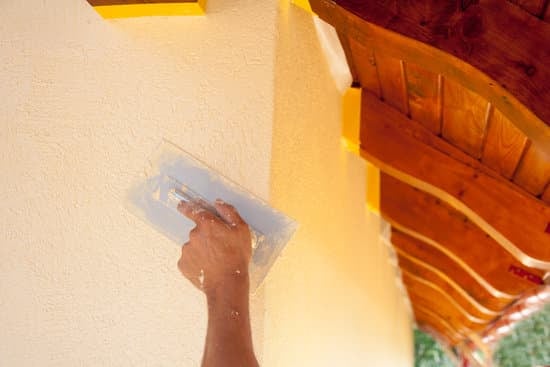Does home improvement cancel the maximum 2 tax increase law? For homeowners, understanding the intricacies of property taxes and the impact of home improvement projects is crucial. The Maximum 2 Tax Increase Law, also known as Proposition 13, has been a significant factor in property tax assessments. This article aims to delve into the relationship between home improvement and the Maximum 2 Tax Increase Law, providing insight into how renovations and upgrades can potentially affect property taxes.
The law, enacted in California in 1978, limits property tax increases to no more than 2% annually based on the assessed value of a property. This has had a profound impact on homeowners by providing predictability and stability in property tax assessments.
However, when it comes to home improvement projects, there are certain considerations that homeowners need to be aware of. From minor upgrades to major renovations, any changes to a property can potentially trigger reassessment and lead to an increase in property taxes.
In this article’s subsequent sections, we will discuss various types of home improvement projects that may impact property taxes, explore their potential effects on tax assessments, uncover exemptions and limitations set forth by the law, share real-life case studies, and provide essential tips for homeowners navigating the complex intersection of home improvement and property taxes. Understanding these factors is crucial for homeowners looking to enhance their properties while managing potential tax implications.
Understanding Home Improvement
When it comes to home improvement projects, there are a wide variety of changes that homeowners may consider making to their properties. These renovations can range from small upgrades to major overhauls, and each type of improvement may have a different impact on property taxes. Here are some common types of home improvement projects that could potentially affect property tax assessments:
- Interior Renovations: This includes remodeling kitchens, bathrooms, and other living spaces within the home.
- Exterior Upgrades: Projects such as adding a new deck, patio, or landscaping can also impact property taxes.
- Structural Changes: Any alterations to the structural integrity of the home, such as adding an additional room or expanding the footprint, may result in a reassessment of the property’s value.
- Energy Efficiency Improvements: Installing energy-efficient features like solar panels, insulation upgrades, or energy-efficient windows may qualify for tax breaks but could also increase property taxes.
It’s important for homeowners to understand that not all types of home improvement projects will necessarily lead to higher property tax assessments. For example, routine maintenance or repairs usually do not trigger reassessments unless they significantly increase the value of the property.
Additionally, different regions and local authorities may have specific regulations regarding which types of improvements can impact property taxes. Therefore, homeowners should always consult with their local tax assessor’s office or a qualified real estate professional before embarking on major renovation projects in order to fully grasp how these changes might affect their tax obligations.
How Home Improvement Impacts Property Taxes
Home improvement projects can have a significant impact on property taxes, as they often increase the value of a home. When a homeowner makes renovations, additions, or upgrades to their property, the assessed value of the home may also increase, leading to higher property tax bills. This is because property taxes are typically based on the assessed value of the property, and any improvements that raise its worth can result in an increase in taxes.
It’s important for homeowners to understand that not all home improvement projects will automatically lead to higher property taxes. Minor upgrades or repairs may not significantly impact the assessed value of a home.
However, major renovations such as adding a new room, remodeling the kitchen or bathroom, or building a deck or pool are more likely to result in higher property tax assessments. Therefore, it’s essential for homeowners to consider the potential tax implications before undertaking substantial home improvement projects.
In addition to increasing property taxes, home improvement projects can also make it more challenging for homeowners to qualify for certain property tax exemptions or limitations. For example, some jurisdictions offer tax breaks for senior citizens or individuals with disabilities based on their income and property value.
If a renovation increases the assessed value of their home beyond a certain threshold, they may no longer qualify for these exemptions. Therefore, homeowners should carefully weigh the financial implications of their home improvement plans and be aware of how they may affect their property taxes.
| Impact of Home Improvement | Property Tax Assessments |
|---|---|
| Increase in assessed value | Potential rise in property taxes |
| Difficulty qualifying for tax exemptions | Lack of eligibility for certain tax breaks |
Exemptions and Limitations
When it comes to the Maximum 2 Tax Increase Law, there are exemptions and limitations that homeowners should be aware of, especially in relation to home improvement projects. While this law generally restricts property tax increases to no more than 2% annually, certain factors such as home improvements can impact how this law is applied. Understanding these exemptions and limitations is crucial for homeowners who are considering or have already undertaken home improvement projects.
One of the key exemptions to the Maximum 2 Tax Increase Law in relation to home improvement is the concept of “substantial improvement.” This refers to renovations or additions that significantly increase a property’s market value. In such cases, the property may be reassessed at a higher value, leading to a potential increase in property taxes. It’s important for homeowners to understand what constitutes substantial improvement and how it may affect their property tax assessments.
Additionally, there are limitations within the law that provide certain protections for homeowners. For example, some jurisdictions may have specific provisions for capping property tax increases related to home improvements, regardless of whether they result in substantial improvement. These limitations vary by location and it’s essential for homeowners to familiarize themselves with the specific regulations and guidelines in their area.
| Maximum 2 Tax Increase Law Exemptions | Maximum 2 Tax Increase Law Limitations |
|---|---|
| Concept of “substantial improvement” | Specific provisions for capping property tax increases |
| Potential increase in property taxes due to reassessment | Varying regulations and guidelines by location |
Case Studies
Impact of Major Renovations
In one case study, a homeowner conducted a major renovation on their property, including the addition of a new room and upgrading the kitchen and bathrooms. As a result, the assessed value of the property significantly increased, leading to a higher property tax bill. While the homeowner was pleased with the improvements made to their home, they were surprised by the substantial increase in property taxes.
Effect of Energy-Efficient Upgrades
Another example involves a homeowner who invested in energy-efficient upgrades such as solar panels and insulation. These improvements not only reduced the homeowner’s energy costs but also qualified for tax credits. However, it also led to an increase in the assessed value of the property, ultimately impacting property taxes. This case highlights how even beneficial home improvements can have unintended consequences on property tax assessments.
Impact of Cosmetic Changes
In contrast, a different homeowner focused on cosmetic changes such as landscaping and interior design updates. While these changes enhanced the aesthetic appeal of the property, they did not have a significant impact on property tax assessments. This case demonstrates that not all home improvements result in substantial increases in property taxes.
These case studies illustrate how various types of home improvement projects can impact property taxes differently. It is essential for homeowners to consider these real-life examples when planning their own home improvement projects and to be aware of potential implications on their property tax assessments.
Legal Considerations
Homeowners considering home improvement projects should be aware of the legal considerations and regulations surrounding property taxes. It is important to understand how these factors may impact property tax assessments and potential increases. Here are some key points to consider:
- Local Laws and Regulations: Each municipality or local government may have its own laws and regulations regarding property taxes and home improvement projects. Homeowners should familiarize themselves with the specific rules in their area to ensure compliance.
- Assessment Methods: Property tax assessments are typically based on the value of the property, which can be influenced by home improvements. Understanding how these assessments are made can help homeowners predict potential tax increases.
- Tax Appeal Process: In the event of a substantial increase in property taxes due to home improvements, homeowners may have the option to appeal the assessment. Familiarizing oneself with the appeal process and grounds for appeal is essential in navigating potential tax hikes.
Additionally, it is crucial for homeowners to stay informed about any changes in relevant laws or regulations that could affect property taxes as a result of home improvement. Seeking legal advice or consulting with a tax professional can also provide valuable guidance in understanding and addressing the legal aspects of property taxes and home improvement.
Ultimately, being proactive and well-informed about legal considerations surrounding property taxes and home improvement can empower homeowners to make sound decisions about their properties while mitigating potential tax increases.
Tips for Homeowners
Research Tax Exemptions and Limitations
Before embarking on any home improvement project, homeowners should thoroughly research the tax exemptions and limitations in their local area. Some states or municipalities may offer tax breaks for certain types of improvements, such as energy-efficient upgrades or renovations that improve accessibility for individuals with disabilities. By understanding these exemptions and limitations, homeowners can strategically plan their projects to minimize the impact on their property taxes.
Consult With a Tax Professional
Navigating the complexities of property taxes and how home improvement projects may affect them can be daunting for many homeowners. That’s why it’s advisable to consult with a qualified tax professional who can provide personalized advice based on individual circumstances. A tax professional can help identify potential tax-saving opportunities related to home improvements and ensure compliance with relevant laws and regulations.
Consider the Timing of Home Improvement Projects
Timing can play a significant role in how home improvement projects impact property taxes. For example, completing major renovations just before a scheduled property tax assessment could lead to a significant increase in the assessed value of the home. On the other hand, strategically timing improvements after an assessment may provide some breathing room before any potential tax increase takes effect. Homeowners should consider discussing timing strategies with a tax professional to make informed decisions regarding their home improvement projects.
Conclusion
In conclusion, it is important for homeowners to be aware of the potential impact of home improvement projects on their property taxes. While the Maximum 2 Tax Increase Law provides some limitations on property tax increases, certain home improvements can still lead to higher assessments. Understanding the types of projects that may affect property taxes, as well as any exemptions and limitations to the law, is crucial for homeowners in making informed decisions about their homes.
Additionally, it is advisable for homeowners to consult with local tax assessors or legal professionals when considering significant home improvement projects. This can help them better understand the potential impact on their property taxes and make informed decisions about their investments. By being proactive and seeking professional guidance, homeowners can navigate the complexities of property tax assessments and potentially minimize any unexpected increases due to home improvements.
Ultimately, while home improvement can enhance the value and quality of a home, it is essential for homeowners to consider its potential implications on property taxes. With careful planning, understanding of regulations, and professional guidance, homeowners can make informed decisions about their home improvement projects while mitigating any adverse effects on their property taxes.
Frequently Asked Questions
Do Home Improvements Reduce Taxes?
Home improvements typically do not directly reduce taxes, but they can potentially increase the value of your home. This increased value could result in higher property taxes when your home is reassessed. However, some energy-efficient home improvements may qualify for tax credits or deductions, offsetting some of the cost.
What Is the Inflation Reduction Act for Home Improvements?
The Inflation Reduction Act allows homeowners to exclude a portion of their profits from the sale of their primary residence from capital gains tax if certain criteria are met.
This Act provides an opportunity for homeowners to reduce the tax impact of selling their homes, especially if they have made significant improvements that have increased the home’s value over time.
How Long Can You Claim Home Improvements on Taxes?
Generally, you can claim home improvements on taxes for as long as you own your home and it is considered your primary residence. Expenses related to home improvements can potentially be used to increase your cost basis when calculating capital gains upon selling your home.
It’s important to keep detailed records of the expenses and consult with a tax professional when claiming these deductions on your taxes.

I’m thrilled to have you here as a part of the Remodeling Top community. This is where my journey as an architect and remodeling enthusiast intersects with your passion for transforming houses into dream homes.





